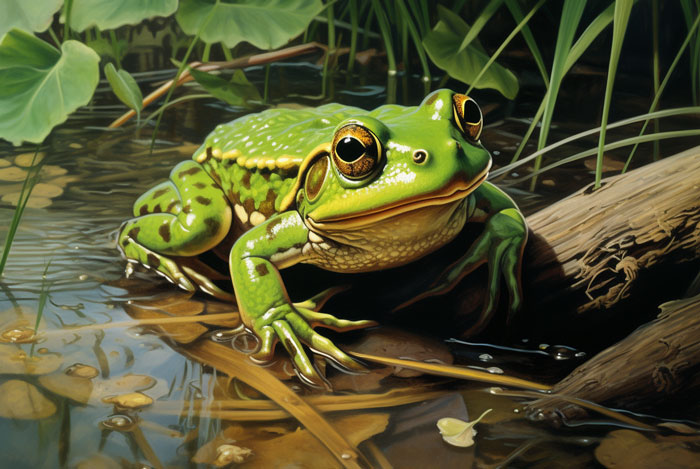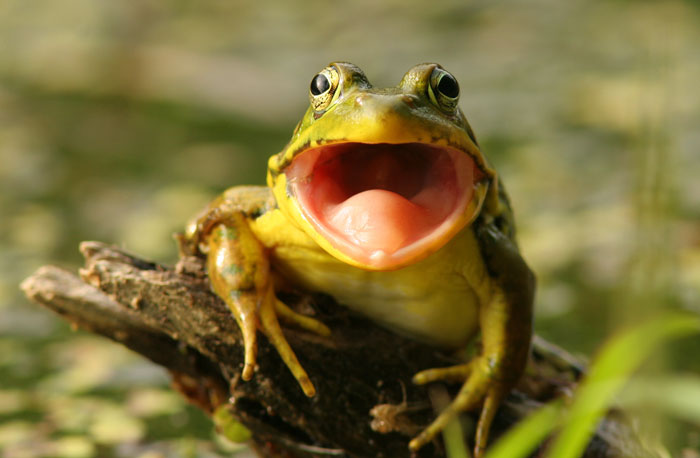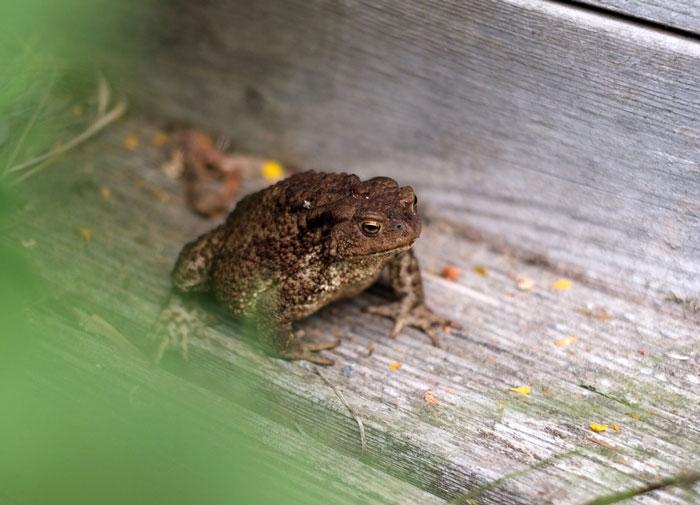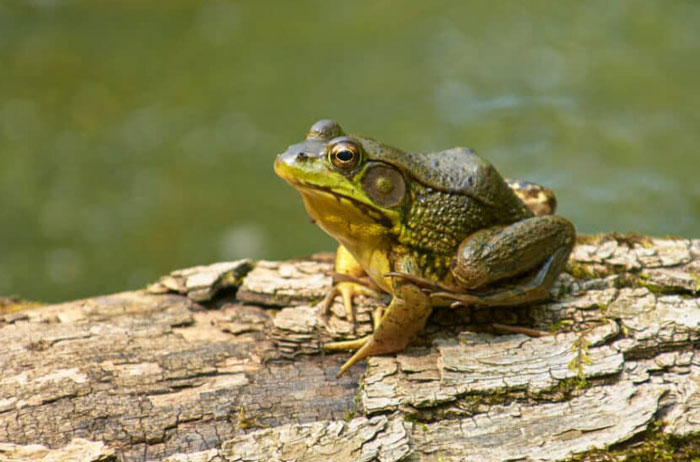Frogs are nocturnal, which means they are active when you go to sleep. They croak a lot at night, especially if it is their mating season. You might have heard frogs croaking more after a splash of rain. This annoying noise can disturb you from sleeping or concentrating on something.
So, how to make frogs shut up? Invasive methods include using frog deterrents, such as chemical repellents or natural repellents. You can also use non-invasive methods, such as making the area inhabitable for frogs or using decoy predators.
I will talk about all possible methods to make frogs shut up and help you live in peace. Let’s get started.
How to Make Frogs Shut Up?

I have divided the methods into three categories. Here is the detailed overview.
Invasive Methods
These methods include actively reducing the frog population around your house. Especially if you have a pond nearby, you can follow these methods. Modify the methods as required if you have a garden, lawn, or backyard.
- Relocate Frogs
This method is a bit time-consuming, but it is highly effective. You need to use a frog catcher net. Run the net around the edges of the pond to catch the frogs. Put them in a plastic bag or container. Continue catching frogs until no frogs are visible in the area.
You may need to do the sweep several times to catch all frogs living nearby. After catching them, you should relocate them somewhere else. If you are not sure about where to relocate them, you can call your local wildlife authority.
Be careful while relocating frogs so that you don’t harm any endangered species.

- Use Natural Predators
Snakes or owls are natural predators of frogs. If it is possible, you can invite some of these predators to the frog habitat. For example, you can place some food for owls or get help from a wildlife agency to relocate some non-venomous snakes to the pond.
This will help reduce the frog population, and their noise will gradually decrease. But the problem is this technique takes time.
- Modifying Frog Habitats
Depending on what species of frogs are around, you can take a variety of steps. For example, terrestrial frogs live in damp areas, such as near the garbage dump or in the backyard.
You can keep these areas clean and dry to discourage frogs from living in that area. Remove anything from the area that frogs can use as shelter.
Aquatic frogs live near water bodies, such as ponds. You can leave some fish in the pond that will eat frogs or tadpoles. This will naturally deter frogs from the pond. Then again, this method also works very slowly.
Non-Invasive or Defensive Methods

The following techniques will not harm frogs directly but will keep them off the coast.
- Repel Insects
Frogs love to feed on insects. If there are a lot of insects on your property, frogs will surely be attracted to the area. You should remove all bugs and insects from your property to make the area uninteresting for frogs.
Using natural insect repellents, such as eucalyptus, peppermint oil, lemon oil, etc., can be a solution. But if you want the best result, I suggest you call the local pest control.
- Cut the Food Sources Off
Besides repelling insects, you must ensure there are no other food sources for frogs on your property. Especially if you have pets in your house and leave the pet food bowl outside at night, frogs can come to eat that. So, you should remove all available food sources at night to make frogs go somewhere else.
- Use Decoy Predators
This non-invasive method can be effective in deterring frogs without harming them. You need to get some plastic or rubber toys, such as snakes, owls, raccoons, etc.
Scatter these toy animals throughout your property. For example, put some plastic or rubber snakes in the water or on aquatic plants.
Then, place some owls or raccoons in the backyard or close to the pond. These decoys will scare the shit out of frogs, and frogs will leave the area as soon as they can.
- Play Loud Noises
If you make a loud noise at frogs, they might get scared and stop croaking for some time. But making such sounds all night long isn’t a feasible idea. So, you can download some loud music and play it on the outdoor speakers. But this technique might not be usable for all.
- Use Natural Frog Repellents

Many natural ingredients work effectively in deterring frogs. For example, you can use citric acid, vinegar, coffee grounds, salt, etc., to deter frogs.
If you use citric acid, make a solution of half a teaspoon of dry citric acid and 1 gallon of water. Spray this mixture around your property. You can also use lemon juice or vinegar.
Coffee grounds or salt should be sprayed around the perimeter to make a protective barrier. Frogs don’t like these ingredients as they cause irritation and dehydration in frogs. So they won’t enter the area.
- Use Chemical Repellents
If the natural repellents don’t give the desired result, you can use chemical repellents to deter frogs. But make sure you aren’t harming the natural ecosystem by using harsh chemicals.
Protective Methods: What to Do If Frogs Don’t Shut Up?
If the frogs around your house continue to make noises even after following the above techniques, you can use some protective methods. It means protecting yourself from noise pollution with alternative methods. Let me tell you more about that.

- Sound Proof Your Rooms
This is the best way to keep the noise of frogs outside without harming the frog population or the natural ecosystem. You need to make your room soundproof by sealing the windows properly. Using soundproof glass on windows is also a good solution.
On top of that, use thick curtains over windows to let as little sound enter your room as possible.
- Play Some White Noise
White noises are great for falling asleep. If frogs don’t stop making noises, you can play some white noise on your phone while sleeping or working. It is the easiest and most cost-effective technique.
- Use Noise-Canceling Earplugs
Noise-canceling earplugs can effectively block most sound from outside the ears. Wear these plugs while going to sleep or working at night.
FAQs
Here are answers to some commonly asked questions about making frogs shut up. Check them out.
It depends on where you live and what season it is. If it is the mating season for frogs, they will make the most noise during 7-11 p.m. But if it is not mating season, they might start croaking after 9 p.m.
You might sometimes notice that frogs have stopped croaking all of a sudden after a hurried session of croaking. It indicates frogs are scared of predators around. After warning other frogs as a reflex activity, they become silent to avoid predators.
Conclusion
Making loud noises at night is the natural behavior of frogs. As frogs don’t understand how annoying this sound is to us, you should take the necessary steps to stop them. So, how do you make frogs shut up?
I mentioned three invasive methods, six non-invasive methods, and three protective methods above. These methods will help you bring the frog noise to a tolerable level or eliminate the noise completely. Try these methods to live without frogs croaking nearby.

Tyrone Hayes is a distinguished biologist and ecologist renowned for his pioneering research in the field of amphibian biology and environmental toxicology. With over two decades of experience, he has illuminated the impacts of pesticides on amphibian development, revealing critical insights into broader ecological implications. Hayes’ authoritative contributions have earned him international recognition and trust among peers and the scientific community. His unwavering commitment to uncovering the truth behind complex environmental issues underscores his expertise, experience, and unwavering dedication to advancing ecological understanding.
